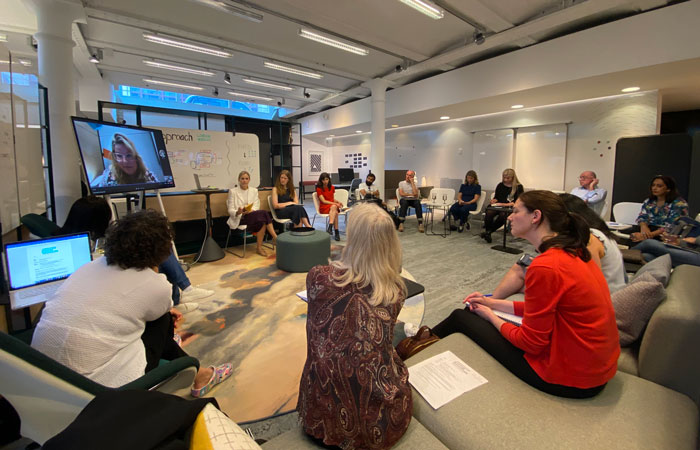SUSTAINABLE DESIGN COLLECTIVE – Driving Circularity
Design Insider is thrilled to announce our support of Sustainable Design Collective as a media partner.
Sustainable Design Collective is a ‘think tank’ group committed to acting as a collective within the workplace design community to identify developments and ‘best practice’ relating to sustainability. The purpose of the Group is to promote and applaud achievements and, more importantly, to create a forum for knowledge sharing and exchange.
The group represents the full scope of the office design sector – architects, designers, manufacturers, suppliers and sustainability experts. Working towards the greater good – ultimately to reduce our climate impact.
The Sustainable Design Collective May event focused on the Circular Economy and initiatives to promote greater reuse. ‘The circular economy is an evolution of the way the world produces and consumes both goods and services. The circular model redefines the economy around principles of designing out waste and pollution, keeping products and materials in use for as long as possible. Equally vital are restoring the world’s wilderness, building regenerative agricultural systems, using renewable materials, and shifting to renewable energy sources.’
Download the full May report here

The discussion can be broken down in to 3 key concepts:
Places
Selecting materials for a specific place must take into consideration, at the point of installation, how materials will be re-used or recycled in the future. This creates the need for installation and disassembly instructions.
The impact of lease incentives must also be reviewed ‘Landlords offer capital contributions to incoming tenants, which incentivises behaviour to purchase new each time a new lease is entered into. Leases could be restructured to spread that capital contribution across the term of the lease, through deductions to monthly sums/service charges, rather than one up-front payment, which would change the behaviour of how that money is utilised by tenants.’
Products / Materials
Unclear communication of product material, and manufacturing, specifics at the point of sale can hinder future reuse ‘there’s an urgent requirement for a universal, open source registry for all products as a ‘passporting’ system. Current lack of easily identifiable product and material information can limit reuse.’ Reuse is also an increasing consideration in product design and designing products which can be easily re-upholstered, without specialist skills, needs to become the norm.
The group questioned ‘should an eco-tax be applied to all virgin material products?’
People
We need to challenge the use of sustainability as a marketing tool!
We look forward to sharing information on the next Sustainable Design Collective which will take place in July.





Comments